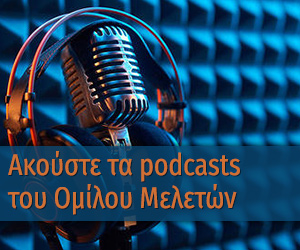Nikodemos
1. No system of knowledge, no teaching can be trustworthy that relies on mainstream Christianity (Catholic, Protestant etc) and its basis, the NT (=New Testament). The 4 Canoninical Gospels, as I demonstrated in Es(V): The New Testament (B’) and Es(VI): H. M. Nicoll: The New Man (A’), are full of contradictions and discrepancies. They cannot serve as sources for Jesus’ life or teaching.
The Gnostic texts seem much more reliable as they are free of contradictions and of biographical material. And some of them like the Gospel of Thomas, Gospel of Mary, Dialogue of the Saviour and Gospel of Truth may well have been written c 80-100 while others like Apocryphon of John, Book of Thomas the Contender and Gospel of Philip may be of c 150 or earlier, according to Robinson and other authorities. Moreover, some of them contain cosmogonical and anthropogonical accounts – a feature absent in the 4CG.
2. The Canonical Gospels may be of the same period. Justin Martyr is the first to mention two gospels – Matthew and Luke – c. 150-160; but their contents are not known. St Paul’s epistles are known before 100 but not any of the FCG. They come to be known as such with the names of the evangelists only after 180 in the writings of Irenaeus, bishop of Lyon. The full NT as we have it was first established in the 4th century!
In many churches it was not accepted but was considerably modified. One version accepted both John’s Apocalypse and Peter’s Apocalypse (a very different piece of writing). St John Chrysostom rejected all Apocalypses, including John’s. But Clement (Alexandria c 200 CE) accepted both, also the Didachē (=Instructions for a pious Christian life of the 2nd cent.) and the Epistle of Hermas another pious piece which nobody now reads except scholars.
However, Clement (Alex.) mentions in his Stromateis a Gnostic tradition known well to him and a secret version of Mark’s Gospel (this is mentioned by Ouspensky also in his New Model…); he also mentions a Gospel of Egyptians (Strom 3.64,1; 3.66,1-2; 3.92.2). Many other Gospels and similar writings are mentioned by others.
3. Ouspensky died in 1947. Gurdjieff died in 1949. Maurice Nicoll died in 1953.
The Gospel of Thomas with its 114 sayings of Jesus was published in 1957. Other Gnostic texts in subsequent years and the complete Nag Hammadi collection in its definitive version came out in 1988.
Consequently, these three men can be excused to some degree for not taking up the Gnostic version of Christianity.
4. However, I don’t think they were entirely justified in their ignorance of the Apocrypha (of which there were plenty of publications before 1940) and of the Gnostic aspect of Christianity. The Hymn of Jesus, the Gospel of Mary (the same as in the Nag Hammadi Collection but found independently also), the Acts of John, the Acts of Thomas etc had been published while the Gnostic teachings of Basilides, Marcion and Valentinus, were mentioned in the early Fathers Irenaeus and Hippolytus.
If occultists promulgate the “psychological” (and more so the “esoteric”) method, as Ouspensky put it, they ought to examine the traditions outside the official or mainstream Christianity and its NT. Oddly enough some older occultists did accept other sources – but not Ouspensky and his followers.
What is even more surprising is their failure or unwillingness to evaluate more correctly the unreliability of the NT and examine thoroughly the history of the early manuscripts and the gradual build-up of the NT as the only authority of Christianity.
5. Let me close this paper with two examples, additional to those I gave in some earlier papers.
The earliest and best manuscripts of Mark’s Gospel end in chapter 16, verse 8, where the angel tells the 3 women that Christ has risen and the tomb is empty (so the Codex Sinaiticus and the Codex Vaticanus too, from the 4th cent). Verses 9-20 with Jesus’ appearance to the disciples are found only in later versions!
Are we not entitled to think that, since Mark’s is thought by all authorities to be the earliest of the FCG, they are spurious additions and that the same most probabbly happened in the other Gospels?
Then, in Luke chapter 22, in the Last Supper, Jesus gives bread and wine to the 12 disciples saying it is his flesh and blood. This is the basis of the church ritual of the Eucharist (=thanks-giving) and Holy Communion. But verses 19-20 which have these words of the Eucharist do not appear in the earlier and best manuscripts as they do not appear in John’s Gospel, chs 13-18; they do not appear in the Didachē either and in its 9th section the wine is referred to King David!
No, far from it! The FCG are not unquestionable authorities for Christ’s teachings!


